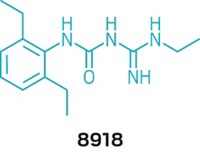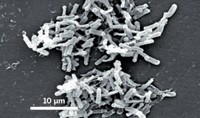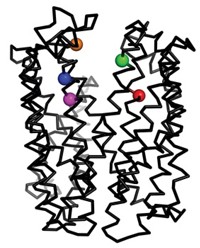Advertisement
Grab your lab coat. Let's get started
Welcome!
Welcome!
Create an account below to get 6 C&EN articles per month, receive newsletters and more - all free.
It seems this is your first time logging in online. Please enter the following information to continue.
As an ACS member you automatically get access to this site. All we need is few more details to create your reading experience.
Not you? Sign in with a different account.
Not you? Sign in with a different account.
ERROR 1
ERROR 1
ERROR 2
ERROR 2
ERROR 2
ERROR 2
ERROR 2
Password and Confirm password must match.
If you have an ACS member number, please enter it here so we can link this account to your membership. (optional)
ERROR 2
ACS values your privacy. By submitting your information, you are gaining access to C&EN and subscribing to our weekly newsletter. We use the information you provide to make your reading experience better, and we will never sell your data to third party members.
Biological Chemistry
Protein switch could aid battle against hospital infections
October 9, 2006
| A version of this story appeared in
Volume 84, Issue 41
In work that could lead to new therapeutics to combat hospital-acquired infections, researchers have determined the structure and mechanism of action of the bacterial protein MgrA (Nat. Chem. Biol., DOI: 10.1038/nchembio820). Staphylococcus aureus accounts for most deaths associated with infections that some patients get while in hospitals. Its MgrA protein is known to regulate the pathogen's virulence, cell wall biosynthesis, metabolic changes, and antibiotic resistance, but it wasn't known how. Assistant professor of chemistry Chuan He of the University of Chicago and his coworkers obtained the crystal structure of the dimeric protein and have found that a key cysteine works like a switch, activating MgrA when the cysteine is oxidized. This MgrA activation causes the bacterium to thicken its cell wall, turn on a protective anaerobic metabolic pathway, shut down its virulence, and increase its antibiotic resistance. The researchers hope to come up with small molecules that turn on MgrA and thus render the bacterium harmless.





Join the conversation
Contact the reporter
Submit a Letter to the Editor for publication
Engage with us on Twitter